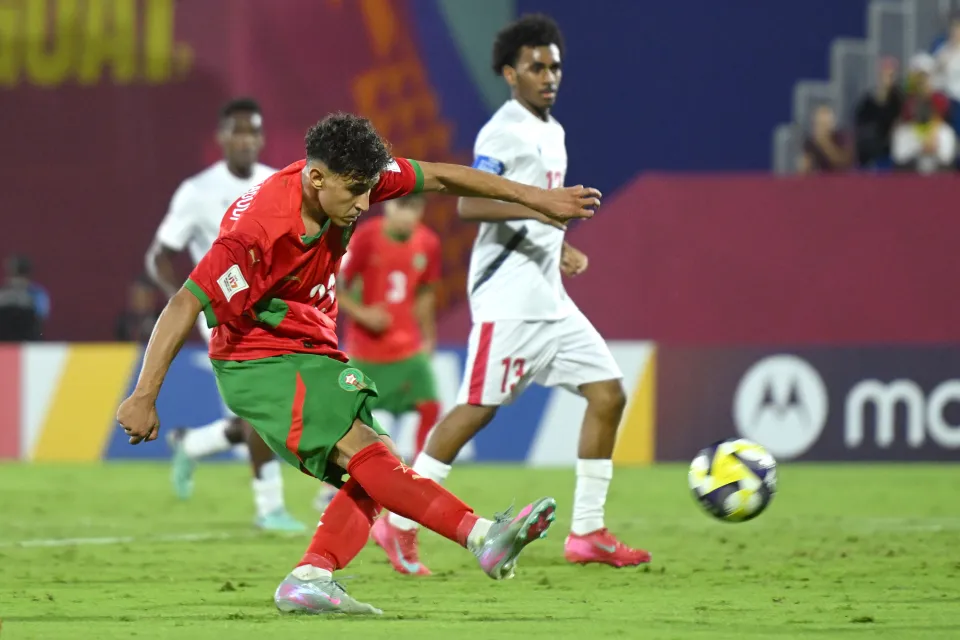When Morocco took to the field against New Caledonia, few expected a night of historic proportions. But by the final whistle, the Young Atlas Lions had emphatically broken the FIFA U-17 World Cup record for the biggest victory in a single match.
In a stunning 16-0 demolition, Morocco obliterated the tournament’s previous record margin of victory, set when Spain beat New Zealand 13-0.
Two New Caledonian red cards in the first half deepened the gulf, leaving Morocco to chase the goal difference needed to stay alive as one of the best third-placed teams.
Oualid Ibn Salah, Abdelali Eddaoudi, Ziyad Baha, Nahel Haddani, Ismail El Aoud, and Abdellah Ouazane each struck twice, while Soukrat and El Khalfioui added further goals. El Aoud later completed the rout with a late double, sealing one of the most dominant wins in youth football history.

Yet, despite the record-breaking triumph, Morocco finished behind Japan and Portugal in Group B. Their fate now hangs on results elsewhere to confirm whether they progress to the knockout rounds.
ALSO READ:
- Senegal, Egypt shine as South Africa, Tunisia advance in 2025 U-17 World Cup
- Morocco crowned U20 World Champions after beating Argentina 2-0 in Santiago
- Morocco named host nation for multiple FIFA, CAF competitions
- The secret behind Senegal’s continental football dominance
A reset of spirit
Captain Hamza Bouhaddi said the performance showed a collective reset after two early defeats. “We’re delighted with this win and the spirit we showed today. This is our true level,” he explained. “We approached today’s game as if it were our first in the tournament.”
The emphatic display may yet serve as a rallying point. Qualification, meanwhile, remains almost certain with the North Africans leading the best third-placed table.
If the football gods smile kindly, this performance could mark not the end, but the rebirth of Morocco’s U-17 World Cup journey.
Tags: Morocco, New Caledonia, FIFA U-17 World Cup, #U17WC, #FIFAU17WC, #U17WorldCup, Oualid Ibn Salah, Abdelali Eddaoudi, Ziyad Baha, Nahel Haddani, Ismail El Aoud, Abdellah Ouazane, Hamza Bouhaddi.